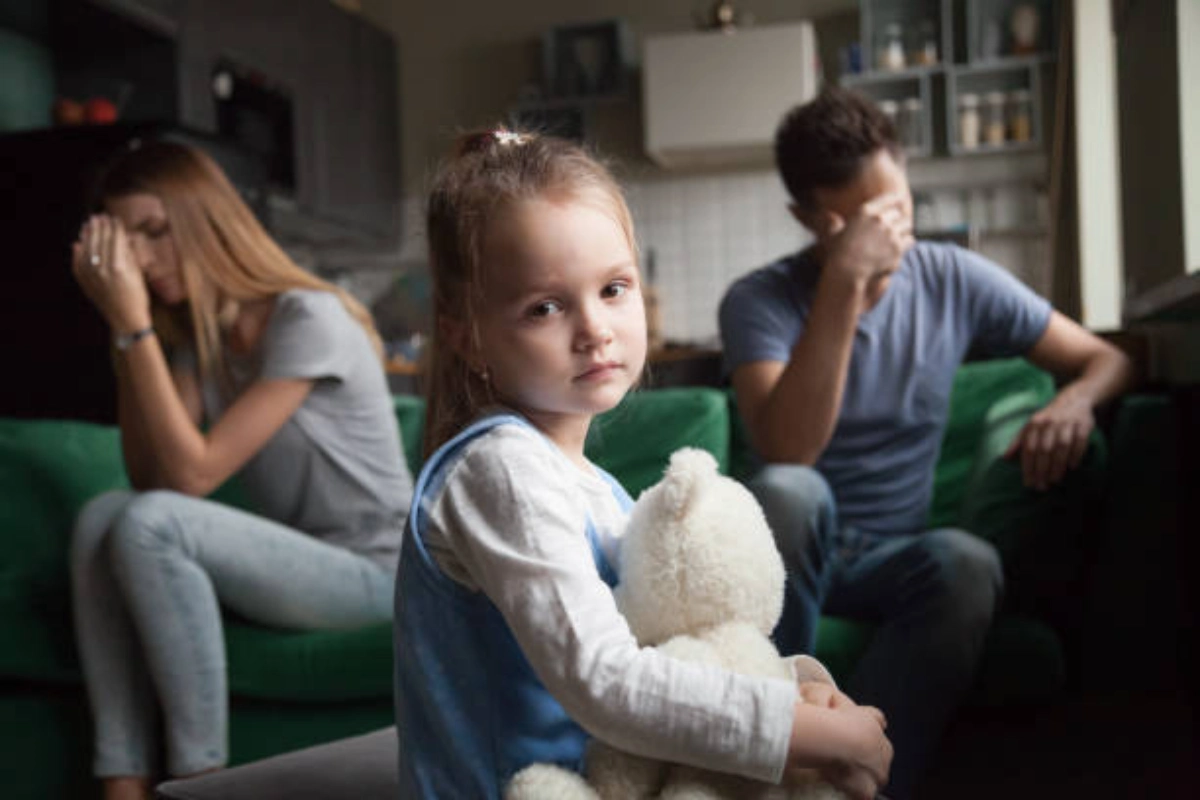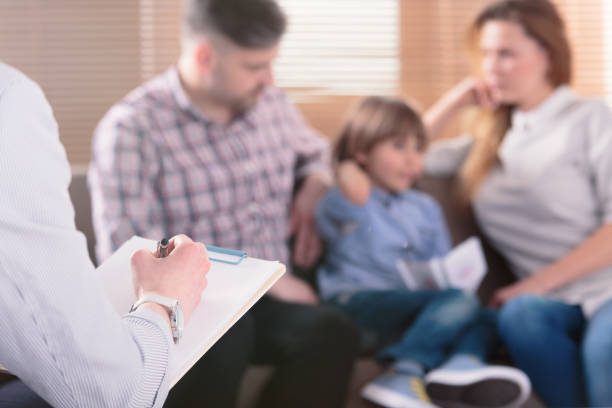How to Protect Your Kids During a Divorce?

The Emotional Impact of Divorce on Children and How to Help Them Cope
Divorce is a life-altering event that not only affects the couple involved but also deeply impacts their children. The end of a marriage can bring about a whirlwind of emotions for children, including sadness, anger, confusion, anxiety, and fear. These emotions may manifest in different ways, such as behavioral changes, academic struggles, or social withdrawal. Since children often lack the emotional maturity to process such a significant change on their own, they rely heavily on their parents for reassurance and guidance. Parents play a crucial role in helping their children navigate this difficult transition by providing a stable, supportive environment where they feel safe expressing their emotions. Children need to know that their feelings are valid and that both parents will continue to love and care for them, regardless of the separation. The way parents handle the divorce process can significantly influence how children cope and adjust to the changes in their family structure.Effective Communication Strategies for Discussing Divorce with Kids
Discussing divorce with children requires sensitivity, honesty, and a focus on their well-being. Since children of different ages process information differently, tailoring the conversation to suit their level of understanding is essential. Below are some strategies for making this conversation smoother and more reassuring for children:- Choose the Right Setting: Find a quiet, comfortable place where your child feels safe and relaxed. Avoid discussing divorce during stressful moments, such as before school, bedtime, or right after an argument. Creating a calm environment allows children to absorb the information without added emotional distress.
- Use Age-Appropriate Language: Younger children need simple and direct explanations, such as “Mom and Dad are going to live in different houses, but we both love you very much.” Older children may ask more detailed questions, so be honest while avoiding sharing unnecessary adult concerns.
- Encourage Open Dialogue: Allow your children to express their feelings and thoughts freely. Ask questions like, “How do you feel about the changes happening?” and listen attentively without interrupting or dismissing their emotions.
- Reassure Them: Make it clear that the divorce is not their fault and that both parents will remain actively involved in their lives. Children often internalize blame, so providing reassurance is critical in helping them process the change.

Ready to connect with top legal professionals? Get immediate support— Call us at 877-550-8911.
Creating a Stable Environment for Your Children During Divorce
Children thrive on routine and predictability, both of which are often disrupted by divorce. A structured environment can help them feel more secure and reduce the stress associated with major life changes. Here’s how parents can create stability during this challenging time:- Maintain Consistent Schedules: Keeping regular meal times, homework routines, and bedtime schedules can provide children with a sense of normalcy.
- Align Parenting Styles: Work with your ex-partner to establish similar rules and expectations in both households. This prevents confusion and helps children adjust more easily.
- Limit Exposure to Conflict: Shielding children from parental arguments and disputes is essential. Studies, such as those conducted by the American Psychological Association, show that children exposed to high parental conflict during divorce are more likely to experience emotional distress and behavioral problems.
Setting Boundaries and Maintaining Consistency in Parenting
Consistency is key to helping children feel secure during and after a divorce. Setting clear boundaries ensures that children understand expectations and experience minimal disruption to their daily lives. Consider these strategies:- Develop a Co-Parenting Plan: A well-structured plan should include visitation schedules, holiday arrangements, and decision-making responsibilities to ensure that children maintain strong relationships with both parents.
- Stay United on Discipline: Consistency in rules regarding screen time, chores, and behavior expectations across both households prevents confusion and maintains stability.
- Avoid Putting Kids in the Middle: Never force children to take sides or act as messengers between parents. This can create unnecessary stress and emotional turmoil.
Encouraging Open Dialogue and Emotional Expression in Kids
Children often struggle to articulate their emotions, especially when experiencing major life changes such as divorce. Encouraging open communication can help them process their feelings in a healthy way:- Check In Regularly: Ask open-ended questions to encourage your child to share their thoughts and feelings. Examples include, “How are you feeling about the new living arrangements?”
- Model Healthy Emotional Expression: Children learn from their parents, so demonstrating constructive ways to process emotions can help them develop healthy coping mechanisms.
- Use Creative Outlets: Activities such as drawing, journaling, or play therapy can provide children with alternative ways to express their emotions.

Seeking Professional Support for Your Children During Divorce
Sometimes, children need additional support beyond what parents can provide. Seeking professional help can be beneficial, especially if children show signs of persistent sadness, anxiety, or behavioral changes. Some options include:- Child Therapists: Licensed therapists specializing in child psychology can help children process their emotions in a neutral setting.
- Family Counseling: Counseling sessions with both parents and children can improve communication and emotional support within the family.
- Support Groups: Connecting with other children going through similar experiences can help alleviate feelings of isolation and provide a sense of community.
Practical Tips for Co-Parenting Successfully After Divorce
Effective co-parenting is essential for minimizing stress and ensuring that children continue to receive love and support from both parents. Consider these practical tips:- Use Co-Parenting Apps: Tools like OurFamilyWizard or TalkingParents can help manage schedules, share important information, and reduce misunderstandings.
- Keep Communication Business-Like: Focus on the child’s needs rather than personal conflicts. A respectful and cooperative approach benefits both parents and children.
- Be Flexible When Needed: Life changes, and adjustments may be necessary to accommodate the child’s best interests. Being open to modifying schedules when necessary can reduce stress for everyone involved.
FAQs
1. How do I tell my child about the divorce? Be honest but gentle. Use age-appropriate language and reassure them that both parents still love them. 2. Should children go to therapy during a divorce? Therapy can be beneficial, especially if a child shows signs of depression, anxiety, or behavioral issues. 3. How can I reduce conflict with my ex-spouse for my child’s sake? Keep conversations child-focused, use written communication if needed, and avoid arguing in front of the child. 4. What if my child blames themselves for the divorce? Reassure them repeatedly that the divorce is not their fault and that both parents will always care for them. 5. How long does it take for kids to adjust after a divorce? Every child is different, but with consistent support, most adjust within a year or two.Don’t wait to secure the legal representation you deserve. Visit Legal Case Review today for free quotes and tailored guidance, or call 877-550-8911 for immediate assistance.


